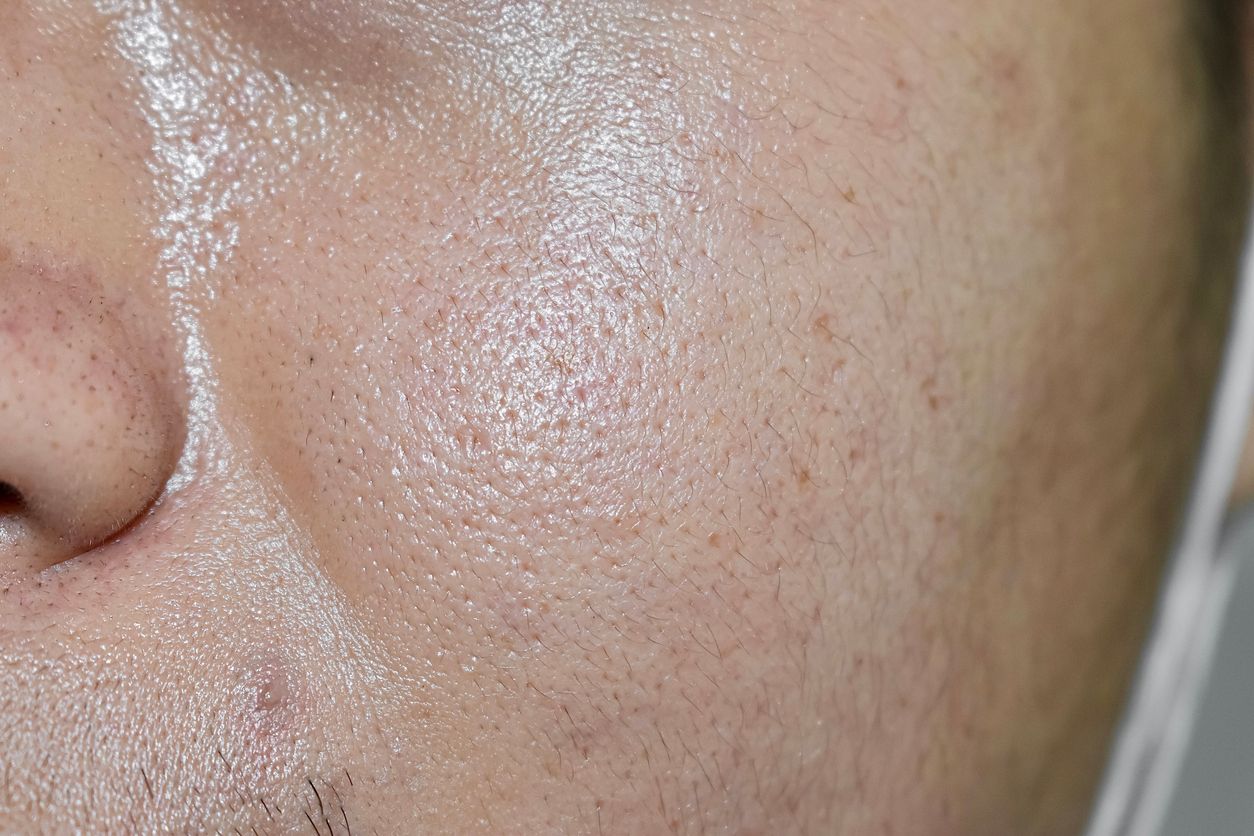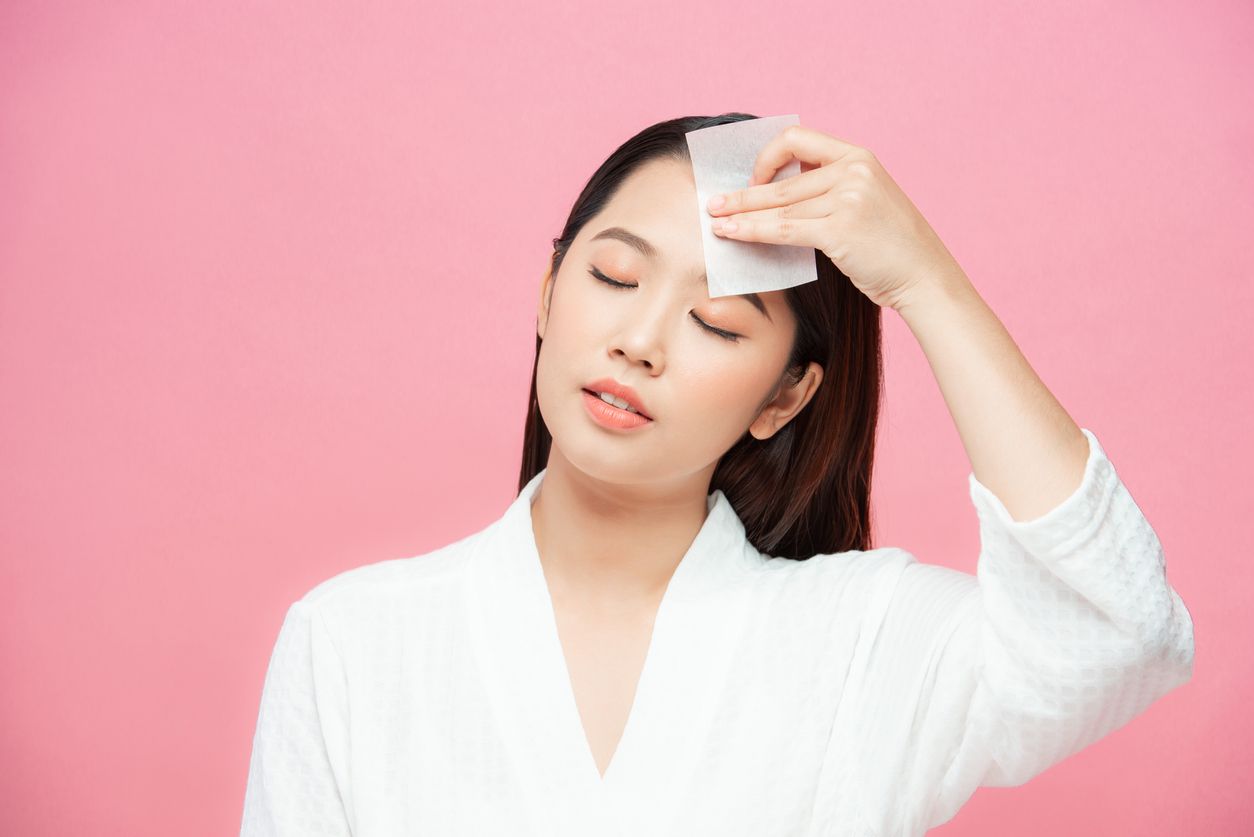
- Home
- Trend
- Weight Loss Strategies
- Acne Tips
- Hair Health Information
- Blemish Removal Tips
- Acne Scar Removal Tips
- Muscle Building Techniques
- Intimate Care Tips
- Postpartum Intimate Care
- Eye Bags Wiki
- Tips for Face Slimming
- Secret of Permanent Hair Removal
- Breast Enlargement Tips
- Cure to Snoring
- Marionette Lines
- Skin-Tightening Secrets
Oily skin is a common concern among beauty lovers today. Excess sebum can make your face look shiny and greasy—not a fresh look at all! But oily skin isn’t just a cosmetic issue. It can signal deeper skin problems like acne and dermatitis that may already be brewing beneath the surface. And no, simply hydrating your skin isn’t enough—oil and water are completely different things! Want to stay moisturized without feeling greasy? We’ve got you covered. In this article, we break down the causes of oily skin, effective product types, and dermatological treatments. Don’t miss the secret weapon we reveal at the end!
Know Your Skin Type Before Tackling Oiliness: Which of These 5 Are You?

1. Oily Skin
This skin type produces the most sebum. The T-zone (forehead, nose, chin)—and sometimes the entire face—can appear shiny and oily, with enlarged pores and frequent blackheads, whiteheads, and breakouts. Although oily skin can be frustrating when you’re younger, it tends to age more slowly due to its natural lipid barrier. Still, many oily skin types also suffer from "oily outside, dry inside"—a condition where excess surface oil actually stems from inner dehydration. This means your skin's protective barrier isn't holding moisture well, and it's compensating by producing more oil.
2. Dry Skin
Dry skin lacks both oil and water. While it doesn’t usually produce excess sebum, it’s prone to flakiness, tightness, itchiness, or irritation. Oily shine isn’t a problem here, but fine lines may show up sooner. Daily skincare should focus on hydration and moisturization.
3. Combination Skin
The most common type—oily in the T-zone and dry on the cheeks. Skincare should be tailored by area, avoiding all-over oil-control products that could make dry areas worse or trigger breakouts.
4. Sensitive Skin
This isn’t a skin type but a condition—and it can affect oily or dry skin alike. Sensitive skin reacts easily to environmental triggers like weather changes, cosmetics, or sunscreen, often resulting in redness, itching, or stinging. Use gentle, non-irritating products.
5. Normal/Neutral Skin
The dream skin type: balanced oil and moisture, soft and radiant, neither greasy nor dry. But even this ideal skin type needs to adapt its skincare routine with the seasons and as you age.
What Affects Oil Production and Your Skin’s Oil-Water Balance?

Cause 1: Genetics
Sebum production is largely hereditary. If your parents have oily skin, your sebaceous glands are likely more active too. While you can't change your genes, daily care can help manage the condition.
Cause 2: Over-cleansing
Many people assume a shiny face means it’s "dirty," so they over-wash or over-exfoliate. But this strips away your natural protective oils, triggering your skin to produce even more oil to compensate. This vicious cycle often worsens acne and sensitivity.
Cause 3: Diet
Fatty, sugary, or spicy foods can boost sebum production. Think fried foods, desserts, milk tea, and dairy. These may cause hormonal changes that make your face oilier. A poorly balanced diet can also disrupt your skin’s metabolism, preventing proper oil discharge.
Cause 4: Weather
Hot, humid weather makes oil glands more active. Cold, dry climates can also cause your skin to overproduce oil if hydration is lacking—leading to the dreaded “dry-inside, oily-outside” scenario.
免費體驗
Acne Treatment
1 Minute Self-Registration
Date should not be before minimal date
4 Types of Products That Help Control Oil Production
1. Oil-Control Products
These help absorb excess oil and regulate sebum. Common types include serums, gels, primers, and mists:
• Oil-control serums often include salicylic acid, zinc, and niacinamide to curb sebum production—great for oily or acne-prone skin.
• Primers and setting sprays keep makeup intact and matte throughout the day.
• Mineral powders or blotting powders help lock makeup in place while absorbing surface oil.
2. Cleansers
Your first step in oil control. Choose gentle, non-irritating cleansers with oil-control benefits, like:
• Amino acid surfactants: moderate cleansing power, non-drying.
• Tea tree oil, kaolin clay, charcoal, or sulfur: absorb oil and fight bacteria—ideal for oily, enlarged-pore skin.
3. Moisturizers
Biggest myth: oily skin doesn’t need moisture. Wrong! Dehydration triggers more oil. Go for:
• Lightweight gels or lotions with hyaluronic acid, glycerin, ceramides—no added oils or silicones to avoid clogging pores.
• Oil-control hydrators: provide moisture and balance sebum—perfect if dryness is making your skin overcompensate.
4. Blotting Papers
An instant fix when you're out and about. Gently press to absorb excess oil and refresh your skin. Available in materials like cotton, hemp, or linen, and often infused with oil-control ingredients like green tea, witch hazel, or mineral powder.
Blotting papers won’t fix the root cause of oiliness, but they’re a useful complement to your routine.
Dermatologist-Recommended Medications to Reduce Oil Production at the Source
1. Oral Isotretinoin
A powerful treatment for severe acne and oil overproduction. A vitamin A derivative that shrinks sebaceous glands and dramatically reduces oil output. Benefits:
• Long-term results (some cases experience permanent improvement)
• Less shine and smaller pores
2. Hormonal Therapy (for Women)
For hormone-related oiliness or jawline acne, doctors may prescribe:
• Birth control pills (e.g., Diane-35): contain estrogen and anti-androgens
• Spironolactone: blocks male hormones to reduce oil and inflammation
3. Topical Retinoids (Vitamin A Creams)
Tretinoin or Adapalene regulate skin cell turnover, prevent clogged pores, and indirectly reduce oil buildup. Suitable for:
• Mild to moderate acne or oily skin
• Should be paired with gentle cleansers and moisturizers to reduce irritation
• May cause temporary dryness or flaking in early use
Note: All these medications should be used under medical supervision. Overuse can lead to unwanted side effects!
Bonus: 7 Daily Habits to Keep Oiliness in Check
• Regular sleep schedule: Avoid late nights to stabilize hormones and oil production
• Balanced diet: Cut back on sugar, fat, and spice
• Vitamin C: Antioxidant that helps regulate oil oxidation and skin balance
• Vitamin E: Strengthens skin barrier and balances oil secretion
• Exercise: Boosts circulation and detox, supports healthy oil balance
• Drink plenty of water: Keeps skin hydrated so it doesn’t need to “self-lubricate”
• Manage stress: Chronic stress can overstimulate oil glands
Want Fast Results for Oily, Dehydrated Skin? Try the Perfect Medical Acne Treatment!
Tried everything and your skin is still oily and dry at the same time? Don’t stress—help is here! Perfect Medical’s Acne Treatment is specially designed for those with redness, acne, scars, blackheads, clogged pores, dehydration, dull tone, and uneven texture. By restoring your oil-water balance and reactivating collagen production from within, this non-invasive, pain-free facial clears up your skin from the roots.
Using dual-spiral suction + vacuum microdermabrasion, it gently removes dead skin cells and clears out oil-clogged pores. A customized purification serum is then delivered deep into the skin—leaving your face smooth, fresh, and grease-free.
Sign up now to enjoy a professional skin analysis + full Acne Treatment!
Book Now: Acne Treatment免費體驗
Acne Treatment
1 Minute Self-Registration
Date should not be before minimal date
FAQ

Why am I getting bumps on my skin?
They may indicate early inflammation—treat early to prevent chronic skin issues.
What causes itchy skin?
Could be external factors (weather, allergens) or internal (hormonal imbalances).
Are skin rashes contagious?
If caused by internal issues, no. But viral infections can lead to contagious rashes.
Can skin rashes be cured?
Some can be cured, but others like eczema or psoriasis may require long-term management.
Can I go in the sun with a skin rash?
Mild sun exposure can help certain conditions, but always wear sun protection to avoid flare-ups.








